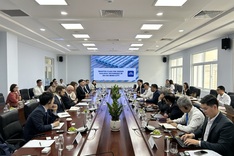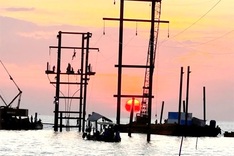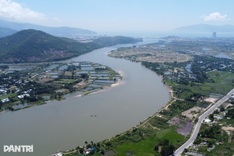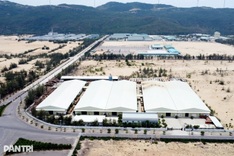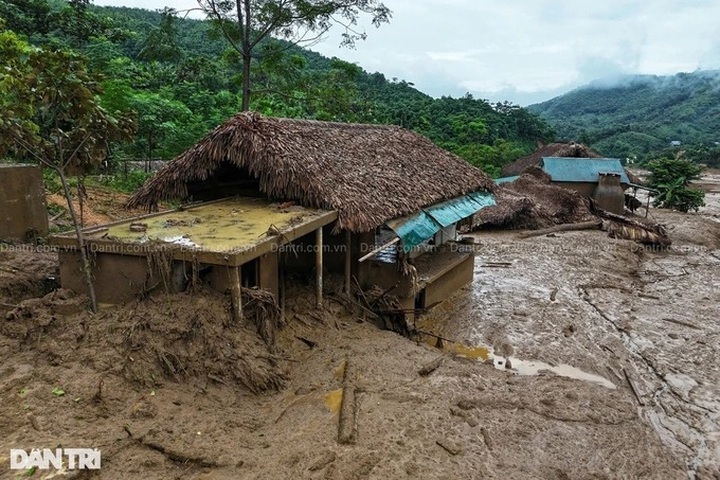
Lang Nu Village in Vietnam's Lao Cai Province is destroyed by a flash flood triggered by Typhoon Yagi in September 2024. The country’s GDP is estimated to decrease by 0.15 percent this year due to the typhoon. Photo by Ngoc Tan.
New Asian Development Bank (ADB) research finds the impacts of climate change could reduce gross domestic product (GDP) in developing Asia and the Pacific by 17 percent by 2070 under a high end greenhouse gas emissions scenario, rising to 41 percent by 2100.
Rising sea levels and falling labour productivity would cause the greatest losses, with lower income and fragile economies hit hardest. The new research, presented in the inaugural issue of ADB’s Asia-Pacific Climate Report, details a series of damaging impacts threatening the region. If the climate crisis continues to accelerate, up to 300 million people in the region could be threatened by coastal inundation, and trillions of dollars of coastal assets could be damaged annually by 2070.
“Climate change has supercharged the devastation from tropical storms, heat waves, and floods in the region, contributing to unprecedented economic challenges and human suffering,” said ADB President Masatsugu Asakawa. “Urgent, well-coordinated climate action that addresses these impacts is needed before it is too late. This climate report provides insight into how to finance urgent adaptation needs and offers promising policy recommendations to governments in our developing member countries on how to reduce greenhouse gas emissions at lowest cost.”
The report finds that regional public sentiment supports climate action. In an ADB climate change perception study this year, 91 percent of respondents across 14 regional economies said they view global warming as a serious problem, with many seeking more ambitious government action.
Adaptation responses need to be accelerated to address growing climate risks, along with an imperative to greatly upscale adaptation-focused climate finance. The report values annual investment needs for regional countries to adapt to global warming at between USD102 billion and USD431 billion—far exceeding the USD34 billion of tracked adaptation finance in the region in 2021-2022. Government regulation reforms and enhanced recognition of climate risks are helping attract new sources of private climate capital, but far greater private investment flows are needed.
On the mitigation front, the report shows the region is well placed to embrace renewable energy in driving a transition to net zero, and that forging ahead with domestic and international carbon markets can help achieve climate action goals cost effectively.






